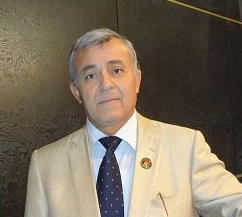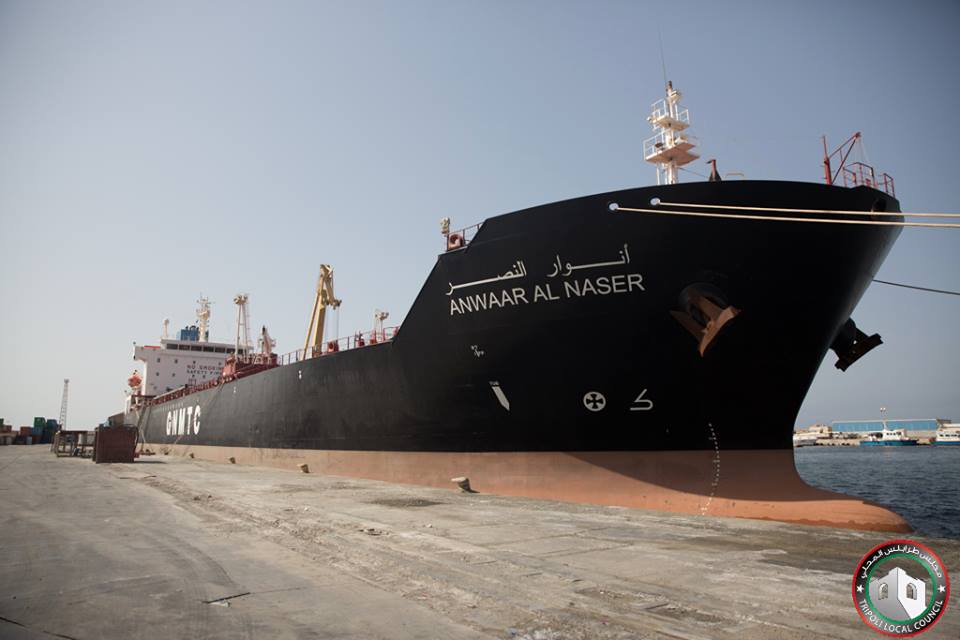By Ajnadin Mustafa.

Tripoli, 14 August 2014:
In an interview with Misrata TV last night, Nuri Abu Sahmain refused to accept that the General . . .[restrict]National Congress was no longer in existence or that he, as its president, no longer had any power in the country.
He was still the country’s commander–in-chief, he insisted, declaring the House of Representatives and all its decisions illegal.
He said that he awaited a ruling by the Supreme Court to confirm his views.
Were the court to agree with Sahmain, it would almost certainly set Libya on a collision course with the rest of the world. The international community, including the UN, the Arab League, the EU, the African Union and the Organisation of Islamic Cooperation, as well as all Libya’s political and economic partners individually have recognised the UN-supported June general elections and the House as legitimate.
In the TV interview, Abu Sahmain complained that neither former prime minister Ali Zeidan nor the present premier Abdullah Al-Thinni listened to him. He also alleged that no one from either administration had given him any documentation about assassinations in Benghazi or the security crisis in the country. He said that the revolutionaries who have been supporting him were Libya’s heroes and that that had to be backed.
At no point in the programme did the Misrata TV interviewer challenge Abu Sahmain’s assertions.
The interview is seen as the latest in the fast developing media war alone alongside the violence between Islamists, the Misratans and their allies on one side and those supporting the House of Representatives on the other.
Efforts by the Islamists and their allies to impose a TV blackout on the debates and decisions of the House have been increasingly successful, although they have resulted in several resignations of TV staff.
Last week, Libya Ahrar TV presenter Nabil Al-Haj resigned, accusing the Qatar-based station, now under the control of Muslim Brotherhood leader Ali Salabi, of bias in covering the House and events relating to it. With so many other staff quitting for the same reason, the station is currently struggling to provide a normal service.
Since then, Anis Al-Sharif, onetime member of the Libyan Islamic Fighting Group, has also resigned from the board of directors of Nabaa TV likewise alleging its lack of impartiality.
As it is, the two national stations, Al-Wataniya and Al-Rasima, viewed as being in the hands of Islamists, are likewise not covering the House. On 4 August, the day that the House held its inaugural session, militiamen said to be under the command of Abdul Raouf Kara, prevented staff at Al-Wataniya from broadcasting the event, ordering them to pay no attention to the House and report Operation Libya Dawn favourably.
Meanwhile, Libya Hurra TV is not broadcasting at all after its offices were bombed in Benghazi and Benghazi TV and BBN TV (also in Benghazi) are likewise closed. Federalist Cyrenaica TV, owned by Ibrahim Jadhran, has not been able to cover the House after three of its team were kidnapped on their way back to Ajdabiya after covering the inauguration of the new parliament on Monday, 4 August.
The only TV stations seen as providing providing coverage of the House are Alaseema TV, based in Gurji, Libya Dawliya (International) TV owned by Mahmoud Jibril, and Libya Awalan, which has set up a studio in Tobruk giving live coverage of the parliament proceedings. [/restrict]








